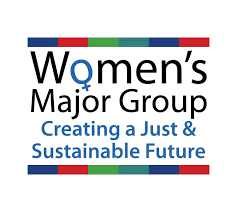
Beijing+25 CSO survey (English) |
Beijing+25 CSO survey (English)
Introduction: The Beijing Platform for Action (BPfA) is an important landmark document for women’s rights. Yet, the women who were part of the activism, advocacy and drafting of the seminal 12 Critical Areas of Concern acknowledge that in 1995, they saw this as a stepping stone: it was meant to lead to greater leaps forward in the advancement of women’s rights.
What has actually happened, particularly evident in the last 10 years, is that governments have refused to compromise when it comes to advancing the feminist agenda at key policymaking spaces, most notably the Commission on the Status of Women (CSW). Instead, the Beijing Platform’s language has become the maximum that states are willing to accept.
As a result, the feminist movement has been defensive of the strongest elements of Beijing and not able to reach a new landmark. At the same time the political environment globally has become more authoritarian, with a deficit of democracy, rise in obscene wealth and inequality that directly links back to a capitalist system that publicises debt but privatises profit and relies on exploitative fossil fuel systems that has created the climate crisis. Women and non-binary persons’ rights are under attack as these threats spread globally: the likes of Duterte, Modi, Bolsanaro and Trump use misogyny and oppression of minorities as their method of consolidating power.
It is important, therefore, as we go into the 25 year review of the BPfA, to take stock beyond the 12 Critical Areas and the existing frameworks.Instead, as we go into CSW64 and the ‘Generation Equality Forum’ in 2020, express the key challenges faced by the feminist movement (what fuels our anger), acknowledge the gains and moments where we have seen accountability (where we can draw hope) and outline what we identify as the emerging issues beyond the BPfA itself and what we want to address in the future, including through the next themes of the CSW and its methods of work (what kinds of actions we want to take).
To this purpose, the Women’s Major Group has drafted this survey using the ‘Anger-Hope-Action’ framework and intends to shape a Feminist Declaration with our core vision and key demands, and a longer Position Paper for going into the 2020 meetings, as well as input into the civil society statements made at the regional reviews in 2019. At minimum, we will share the outcomes of this survey with UN Women, the CSW Bureau, governments convening the Generation Equality Forum, and other UN entities (e.g. Treaty Bodies and Special Procedures).
What has actually happened, particularly evident in the last 10 years, is that governments have refused to compromise when it comes to advancing the feminist agenda at key policymaking spaces, most notably the Commission on the Status of Women (CSW). Instead, the Beijing Platform’s language has become the maximum that states are willing to accept.
As a result, the feminist movement has been defensive of the strongest elements of Beijing and not able to reach a new landmark. At the same time the political environment globally has become more authoritarian, with a deficit of democracy, rise in obscene wealth and inequality that directly links back to a capitalist system that publicises debt but privatises profit and relies on exploitative fossil fuel systems that has created the climate crisis. Women and non-binary persons’ rights are under attack as these threats spread globally: the likes of Duterte, Modi, Bolsanaro and Trump use misogyny and oppression of minorities as their method of consolidating power.
It is important, therefore, as we go into the 25 year review of the BPfA, to take stock beyond the 12 Critical Areas and the existing frameworks.Instead, as we go into CSW64 and the ‘Generation Equality Forum’ in 2020, express the key challenges faced by the feminist movement (what fuels our anger), acknowledge the gains and moments where we have seen accountability (where we can draw hope) and outline what we identify as the emerging issues beyond the BPfA itself and what we want to address in the future, including through the next themes of the CSW and its methods of work (what kinds of actions we want to take).
To this purpose, the Women’s Major Group has drafted this survey using the ‘Anger-Hope-Action’ framework and intends to shape a Feminist Declaration with our core vision and key demands, and a longer Position Paper for going into the 2020 meetings, as well as input into the civil society statements made at the regional reviews in 2019. At minimum, we will share the outcomes of this survey with UN Women, the CSW Bureau, governments convening the Generation Equality Forum, and other UN entities (e.g. Treaty Bodies and Special Procedures).